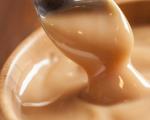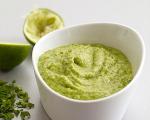Chronic runny nose is a prolonged inflammation of the mucous membranes of the nasopharynx, which can develop into hypertrophy of bone tissue. A considerable number of recipes from traditional healers can make you feel better with this pathology. In our publication we would like to talk about the symptoms, causes and treatment of chronic runny nose. Let's find out which methods of therapy are effective in combating the disease in an advanced state.
Causes
What are the prerequisites for the development of the disease? The formation of pathology can occur under the influence of the following provoking factors:
- Regular inflammation of the mucous membranes of the nasopharynx, which remained without proper attention.
- The need for a person to be in dusty or chemically contaminated areas due to their occupation, as well as frequent hypothermia. Work in enterprises with increased level harm to health is one of the most common causes of chronic runny nose.
- Deformation of the nasal septum and congenital predisposition to colds.
- Uncontrolled, unauthorized reception pharmacological drugs, in particular, means for constricting blood vessels and reducing blood pressure.
Often the need for treatment of chronic runny nose arises in the presence of other pathologies of the nasopharynx. Often the problem makes itself felt against the background of sinusitis and the growth of adenoids. In such situations, to get rid of the symptoms of a runny nose, it is important to eliminate the root cause. This is about surgical removal neoplasms, drainage and dissection maxillary sinuses.
Forms of the disease
There are several forms of chronic runny nose. Each of them has its own characteristic specific symptoms. So, the following variations of pathology are known:
- Catarrhal.
- Vasomotor.
- Hypertrophic.
- Allergic.
- Atrophic.
Catarrhal form
The main manifestation of chronic runny nose in this form is the complication of nasal breathing when the ambient temperature drops. As a rule, trouble occurs while being in the cold. After returning to warm room the effect of complete sinus congestion disappears. A negative manifestation is often accompanied by copious mucus discharge from the respiratory tract interspersed with purulent masses.
Vasomotor form

Chronic runny nose of the presented type is characterized by discharge from the nasopharynx significant amount watery fluid, development of sneezing attacks, difficulty breathing. These manifestations are not constant. Symptoms are observed after waking up, in case of increased blood pressure, hypothermia, as well as against the background of physical and moral exhaustion. All this is a consequence of failures in the vegetative sphere and is only partly due to the development of inflammatory processes on the mucous membranes of the nasopharynx.
Hypertrophic form
The lack of adequate therapy for chronic inflammation of the nasopharynx leads to tissue proliferation. The consequence is a partial blockage of the air paths. A person has to breathe through his mouth. The patient begins to suffer from lacrimation, conjunctivitis, and copious discharge from the nose of a mucous mass with purulent inclusions. The sense of smell suffers, the perception of the taste of food deteriorates, and the voice takes on a nasal tone.
Atrophic form

The development of a chronic runny nose sometimes leads to thinning (atrophy) of tissue in the mucous membranes of the nasopharynx. As a result, viscous mucus is released from the respiratory tract. When dry, this mass forms crusts. The latter do not allow free absorption of air and interfere with the sense of smell. Attempts to remove dried mucus lead to damage to the mucous membranes and bleeding.
Allergic form
Chronic runny nose can be triggered by specific reactions of the body to the action of certain allergens. The mucous membranes often suffer from human sensitivity to dust, plant pollen, pet hair, tobacco smoke, other things. At allergic form The disease is characterized by copious watery discharge from the sinuses and the formation of attacks of uncontrollable sneezing. Against the background of such manifestations, the tissues of the mucous membranes become inflamed, and nasal breathing becomes difficult.
Warming up your feet

Treatment of chronic runny nose at home gives good results through the use of hot baths. For these purposes, a deep basin is filled with boiling water. The water is allowed to cool to a comfortable temperature, after which the limbs are lowered into it. The procedure is continued for 15-20 minutes. Next, the feet are treated with dry mustard powder, put on and sent to bed under the covers.
The course of therapy is about one and a half weeks. If this treatment for chronic runny nose does not produce tangible results, take a short break. Then the procedures are resumed until relief occurs. It is not recommended to resort to the solution during pregnancy, or in case of elevated body temperature.
Drops based on honey and milk
To prepare a folk remedy for the treatment of chronic runny nose and nasal congestion, take a teaspoon of liquid honey and a tablespoon of milk. The components are thoroughly mixed. The medicine is instilled into the nose, 2-3 drops in each nostril. The procedure is performed 3 times a day for a week.
Important condition- use of freshly prepared product. Only in this case will an effective disinfecting, healing, moisturizing and soothing effect be exerted on the tissue of the mucous membranes. This treatment of chronic runny nose is recommended when the disease develops in an atrophic form. Since the use of honey and milk drops helps remove dried mucus crusts from the respiratory tract.
Eucalyptus oil

Treatment of chronic runny nose at home is possible using eucalyptus oil. To prepare the product, take a few tablespoons of crushed plant leaves. Raw materials are poured into a glass vegetable oil. The resulting composition is placed on water bath and warm up for 10-15 minutes. The medicine is allowed to cool, after which it is carefully filtered. Eucalyptus oil is instilled into the nose 3 times a day, 5-6 drops in each nostril. The product relieves the effect of dry mucous membranes and releases Airways.
Infusion of tea tree oil and oak bark
Treatment chronic congestion nose treatment without a runny nose can be performed using a healing infusion. The product is prepared as follows. Use a tablespoon of ground oak bark. Raw materials are poured into a glass boiled water. As soon as the composition has cooled, the liquid is drained and filtered. Add a few teaspoons of oil here tea tree. Mix the ingredients thoroughly.
When starting to treat a chronic runny nose, shake the remedy. Healing infusion instill 3-4 drops into each nostril. The procedure is performed 4 times a day. The result of such therapy is the removal of swelling, the destruction of pathogenic microorganisms, and the prevention of new tissue inflammation in the nasopharynx area.
Onions and honey

For the treatment of chronic runny nose in adults traditional healers It is recommended to use an infusion of onion and honey. The root vegetable is finely chopped to yield about three tablespoons of raw material. Place the onion in a clean container and add a teaspoon of liquid honey. The components of the product are poured with boiled warm water in an amount of no more than 1/4 cup. The composition is mixed and infused for half an hour.
The resulting medicine is instilled into the nose, 3-5 drops. The procedure is performed at least 3 times a day. Following these recommendations helps relieve irritation from the mucous membranes of the nasopharynx, soften tissue, and also destroy pathogenic bacteria.
Soda, salt and iodine
Treatment of chronic runny nose with a folk remedy based on baking soda, salt and iodine. To prepare the solution, prepare a liter of boiled water. Dissolve a teaspoon of salt and soda in the liquid. Add 5-6 drops of iodine here. The composition is stirred until the components are completely dissolved.
For treatment purposes, the resulting liquid is sucked through a tube or from the palm of the nostrils. At the end of the procedure, it is important to blow your nose thoroughly. The result is high-quality cleaning of the nasal sinuses and clearing of the airways.
The disinfectant composition perfectly washes out pathogenic bacteria and slows down self-replication viral infections. Performing the procedure daily makes it possible to avoid complications, in particular, the formation of purulent deposits in the sinuses of the nasopharynx.
Warming up with salt

Warming up the sinuses is a fairly effective folk treatment for chronic runny nose. Regular thermal procedures make it possible to unblock breathing and speed up recovery. However, it is not worth resorting to a solution in cases where there are purulent discharge from the nasopharynx. Impact high temperature on the tissue in this case can provoke the spread of inflammation to adjacent tissues.
How is chronic runny nose treated in children and adults using the presented method? First, heat iodized salt in a frying pan. The hot composition is placed in two separate bags made of natural fabric. Then they are placed in vertical position without using a pillow. The bags are applied on both sides of the nose in the area of the anterior sinuses.
To eliminate congestion and chronic runny nose, treatment is performed 2-3 times a day. The duration of the procedure is about 10-15 minutes. At the end of warming up they remain in supine position for another half hour.
Drops based on camphor and propolis
What to do if nasal congestion due to chronic runny nose does not go away for months? In such situations, traditional healers recommend using the following recipe. They take pharmacy tincture propolis and camphor oil in an amount of no more than one teaspoon. The components are thoroughly mixed. A similar volume of sunflower oil is added here. The composition is filled into a glass vial.
Shake the product several times, then instill 3-5 drops into each nostril. The procedure is performed 3 times a day for a week. Then they take a short break and resume treatment again. This therapy makes it possible to soften and moisturize the tissues of the nasopharynx, and also has a disinfecting effect on the mucous membranes.
Horseradish root and lemon
Chronic runny nose can be cured by combining grated horseradish with lemon juice in equal proportions. The product is taken 3-4 times a day, one teaspoon at a time. Take the medicine shortly before meals. The composition causes considerable irritation to the mucous membranes of the nasopharynx and leads to profuse lacrimation. However, this also comes with active selection mucous deposits from the sinuses. Thus, the airways are cleared and tissues are disinfected.
Finally
So we looked at the symptoms, causes and treatment of chronic runny nose. As you can see, there is a wide range of effective traditional methods of therapy, the use of which makes it possible to significantly improve the state of health in such pathology. To protect yourself from developing a chronic runny nose, you should avoid exposure to the body negative factors, in particular, avoid hypothermia, contact with dust and harmful substances, and also treat colds in a timely manner. If folk remedies do not eliminate the problem, it is important to seek the help of a doctor.
The runny nose will disappear in a matter of days. Try this remedy...
Systematic exacerbation of various pathological conditions signals that they can be classified as a chronic form of disease. Such diseases include chronic rhinitis, characterized by inflammation of the nasal mucosa and lasting for a long time, sometimes with hypertrophy of the bone walls of the nose. Very effective in similar situation is a treatment for chronic runny nose folk remedies.
Causes of chronic runny nose
- Prolonged use of vasoconstrictors local funds and exposure to pollutants such as gas and dust. As a result, the nasal mucosa atrophies, which leads to the formation of dense, dry crusts that narrow the nasal passage;
- An allergic reaction manifests itself in hypersensitivity to various products food, cosmetics and household chemicals, wool, etc. This is manifested in the systematic occurrence of attacks of chronic rhinitis in adults;
- Wrong therapy acute rhinitis or her complete absence leads to spread infectious process in the nasopharynx, which leads to disruption of the structure of the mucous membrane;
- Adenoids, curvature of the nasal septum due to impaired ventilation of the sinuses lead to a decrease in the tone of the mucous membrane and the occurrence of chronic rhinitis;
- Pathological growth and increased secretion of the nasal mucosa lead to the occurrence of heavy discharge from the nose, often purulent, difficulty in nasal breathing and, as a result, complete or partial loss of smell.
To determine the direction therapeutic effects and to understand how to treat chronic runny nose, it is necessary to correctly determine the cause of its occurrence.
Features of treatment

With an exacerbation of chronic runny nose, a person experiences severe itching and dryness in the nasal cavity, thick discharge leads to constant congestion and impaired nasal breathing. Headache, insomnia, feeling of fatigue and apathy appear. This condition often leads to disruption not only of ability to work, but also of life in general. Therefore, treatment should be taken seriously.
Treatment of a runny nose is possible in two ways: traditional drug therapy or surgical intervention and folk remedies. Such means, in turn, can enhance therapeutic effectiveness medicines and strengthen immune system, thereby speeding up recovery.
Nasal rinsing
Rinsing the nasal cavity has an excellent effect, as this procedure helps cleanse the nasal passages, remove pathogenic microorganisms and moisturize the mucous membrane. Traditional medicine has a whole list precious recipes, fortunately, preserved to this day.
- The most accessible recipe is rinsing saline solution. To prepare it, just dissolve a teaspoon of certified salt in half a glass of boiled water. warm water. In case of severe congestion, you should add 10 drops of calendula tincture to the resulting solution;
- For a lasting anti-inflammatory effect, use a decoction of young burdock root. A tablespoon of broth should be diluted in boiling water, then cool slightly and strain. Apply the resulting composition warm up to 3 times a day;
- To treat chronic rhinitis, an iodine-based solution is used, which has powerful antibacterial and anti-inflammatory properties. To prepare it, just dissolve 3 drops of an alcohol solution of iodine in 250 ml of water. The resulting composition should not be used by people sensitive to iodine components;
- For chronic runny nose of a bacterial nature, a solution with furatsilin helps a lot. You need to dissolve a furatsilin tablet in a glass of warm water, mix thoroughly and rinse the nasal passages with the resulting mixture using a syringe.
Inhalation therapy

Inhalations have a beneficial effect on the inflamed nasal mucosa, moisturize and nourish it, and, thanks to the substances included in the composition, they reduce secrecy and prevent the proliferation of pathogenic microflora.
For inhalation, you can use a nebulizer or a regular kettle, into which one of the following compositions should be poured and heated. You can inhale the drug vapors through an improvised paper tube.
Recipes for inhalation compositions for the treatment of chronic runny nose:
- Infusions and decoctions of oak bark, blackberry leaves, calendula, coltsfoot, black currant leaves, walnut and raspberries. To achieve the effect, it is enough to dilute 120 ml of infusion or decoction with a glass of water and heat it up. You should not inhale hot air, but warm air, then the possibility of a burn to the respiratory tract is eliminated;
- Alkaline inhalations are useful for severe congestion and difficulties in mucus separation. Alkali helps to liquefy it and better discharge. Besides, alkaline solutions for inhalation have high antimicrobial properties. To prepare the solution, it is recommended to dilute a teaspoon of soda in two glasses of water and warm it slightly;
- Treatment of chronic rhinitis is also characterized by the use of dry inhalations. The recipe for their preparation is very simple and inexpensive: grate onions, several heads of garlic or horseradish root. In some cases, the resulting ingredients can be mixed. Place in any convenient container and inhale the vapors for 15-25 minutes. To enhance the effect, you can continue inhalation during sleep by placing a container with pureed ingredients next to the bed.
Such inhalations have high concentration natural antibiotics and, accordingly, quickly relieve congestion and prevent the growth of harmful microorganisms.
Drops for a runny nose
The fundamental method of therapy for rhinitis is instillation of drops into the nasal passages or the use of sprays. To use it, it is not at all necessary to empty the shelves with medicines nearby pharmacies, because medicinal drops you can prepare it at home yourself.
1. Garlic drops.

Grind a medium clove of garlic, pour it with sunflower oil heated in a water bath. Then infuse the resulting mixture for 4-5 hours, strain thoroughly and instill two drops into the nasal passages up to 4 times a day;
2. Aloe drops.

To prepare these drops, you will need aloe leaves, from which you need to squeeze out the juice and mix with water, keeping the proportions 1:1. Place the resulting solution five drops into the nose three times a day;
3. Vegetable drops.

Grate fresh beets and medium-sized carrots. Squeeze the mixture well, mix the resulting juice with sunflower oil in a 1:1 ratio, add a couple of drops of garlic juice. It is recommended to instill these drops into the nasal passages 3 times a day, six drops;
4. Onion drops.

Peel and finely chop the middle head onions. Add a tablespoon of honey and 220 ml of boiled water to the resulting mass. Leave to infuse for an hour, then strain and drip six drops three times a day;
5. Bay drops.

Help cure chronic runny nose bay leaves, which should be mixed with half a teaspoon of salt, honey and poured with boiling water. Carefully place the infusion and cool to a temperature of 23 degrees. It is recommended to instill three drops into the nose up to 4 times a day;
Ointments for the treatment of runny nose
The use of ointments prepared at home according to folk recipes helps relieve inflammation, soften the nasal mucosa and facilitate the discharge of viscous secretions.
Mix half a glass of vegetable oil with the same amount of honey, add two grams of wax and propolis, one and a half tablespoons of Kalanchoe or aloe leaf juice. Honey, oil, wax and propolis should be heated in a water bath, add flower juice. Store the resulting mixture in a cool place, heating only immediately before use. Apply 2 times a day;
Bring 50 grams of Vaseline to a boil in a water bath and add 10 g of propolis or bee bread. Mix the resulting product, filter thoroughly, and apply 3 times a day.
Herbal medicine for rhinitis
 Herbs for correct use can improve well-being
Herbs for correct use can improve well-being All kinds of herbs, infusions and teas are folk remedies for chronic runny nose. Some herbs and fruits are a treasure trove useful microelements, which can be used wisely to achieve positive results in treatment.
For example, herbal tea from leaves peppermint, St. John's wort and linden helps maintain the defenses of a weakened body as a whole. To obtain an infusion, mix all the ingredients in equal quantities and pour one and a half liters of boiling water. Take the resulting product 200 ml three times a day.
Similar remedies include a decoction of rose hips, main ability which is to treat chronic rhinitis. To prepare the decoction, take a handful of rose hips, pour boiling water in a thermos and leave for 10-14 hours. The resulting tea is recommended to be consumed throughout the day.
Essential oils for a runny nose

When hit essential oils into the human body through the skin or nose, it has an irritating effect on the receptors, and the protective abilities of the nasal mucosa are activated.
Essential oils can reduce swelling of the mucous membrane, normalize its blood supply, block the functioning of pathogenic microflora and stimulate local immunity.
Chronic runny nose using folk remedies such as ethers should be treated with extreme caution. This is due to the fact that when using them there is a high risk of developing allergic reactions and headaches due to the specificity of aromas.
- Tea tree oil instantly improves your well-being after the first use. It has a high anti-inflammatory effect, accelerates the healing process;
- Fir oil is extremely effective for inhalation, quickly restores nasal breathing, and is known for its disinfectant properties;
- Thuja oil is a godsend in the treatment of chronic runny nose. Its difference is that it can be used not only in the form of drops, but mixed with other oils in aroma lamps;
- Rosemary oil has an astringent and antiseptic effect, which has a beneficial effect on the removal of thick mucus from the nasal cavity.
The use of essential oils is permissible during massage, dry and hot inhalations, and taking aromatic baths. They relieve nasal congestion and restore nasal breathing, moisturize the swollen nasal mucosa.
It is worth remembering that essential oils, like any folk remedies, have a list of contraindications that should not be neglected:
- Pregnancy and lactation;
- Diseases of the circulatory system;
- Epilepsy;
- Individual intolerance to components;
- Age up to 7 years;
Chronic runny nose causes a lot of negative consequences. Please refer to recipes for help. traditional medicine, which have proven their effectiveness in the fight against this unpleasant condition for centuries.
According to statistics in Russian Federation More than 28% of men of reproductive age suffer from chronic prostatitis. This disease is not a death sentence; it is treatable. This is a very intimate problem; often men do not dare to go to the doctor. In such situations, folk remedies will help relieve unpleasant symptoms, reduce the risk of exacerbation of prostatitis.
What is chronic prostatitis
This is an inflammatory process of the prostate gland in men, associated with impaired blood supply to the muscles of the pelvis and pelvic floor or damage to its tissues by an infectious agent. Before starting treatment, you need to be sure that the diagnosis is correct. It is important to know which symptoms of inflammation can be eliminated at home, and which are best treated in a clinic under the supervision of a doctor.
The best folk treatment chronic prostatitis You should start by consulting a doctor to avoid exacerbation of the disease. The acute form cannot be treated independently to avoid serious complications. The main symptoms that can be eliminated with treatment at home:
- pain in groin area pulling character;
- body hyperthermia;
- pain when urinating, frequent urge with an incomplete bladder at any time of the day (day and night);
- problems in sexual life: decreased arousal, erection;
- swelling of the prostate gland due to its enlargement;
- infertility associated with low sperm motility due to thick gland secretion;
- painful ejaculation;
- spontaneous ejaculation.
How to cure prostatitis
Exists general scheme treatment of chronic prostatitis, but individual changes are possible for each case of the disease. According to the doctor's decision, combine:
- antibacterial therapy (fluoroquinolones, penicillin or macrolides);
- anti-inflammatory drugs;
- sulfa drugs, 5-NOK;
- angioprotective agents (heparin);
- immunostimulants;
- treatment of other purulent foci in the body;
- hormone therapy;
- relief of pain;
- physiotherapy (prostate massage);
- correct mode day, regular sex life;
- vitamin therapy;
- quitting smoking, alcohol;
- folk remedies.
When choosing a treatment method, it is necessary to take into account the cause of the disease (infection, stagnation of secretions or venous blood), duration of the course and the presence of aggravating pathology. The main methods include:
- drug therapy (antibiotics, vitamins, painkillers, anti-inflammatory drugs, etc.);
- surgery(resection of the prostate, drainage of cysts or correction of the seminal vesicles to improve the outflow of secretions);
- prostate massage;
- special gymnastics for Bladder, aimed at lengthening the intervals between urinations;
- physiotherapeutic procedures (phonophoresis, ultrasound, magnetic therapy);
- traditional methods.
People with prostate disease must follow general recommendations to alleviate the condition, prevent relapses and speed up recovery. The basic rules include:
- avoid hypothermia (do not sit on cold objects, wear thermal underwear in severe frost, etc.);
- establish proper nutrition(exclude all junk food, consume a large number of raw vegetables and fruits, nuts, cook lean meat, steamed fish);
- choose underwear (do not wear tight ones);
- think about rest (rest more, get regular 8-hour sleep);
- control urination (if painful trips to the toilet, limit the amount of liquid consumed);
- review the rhythm of sexual life (if there is pain during ejaculation and erection, limit the number of sexual acts);
- perform prostate massage.
Treatment of prostatitis in men with folk remedies
People suffering from this disease are interested in how effective traditional methods of treating prostatitis at home are. Doctors prescribe prostate massage and antibiotic therapy, and recommend decoctions and infusions of natural ingredients without chemical additives. They can improve blood circulation, strengthen the immune system, and restore cells of the affected gland. A long and neglected process does not respond well to such treatment.
Herbal treatment
Treatment of prostatitis at home can be done using medicinal herbs. There are a number of plants that will help fight the disease. This:
- sagebrush;
- parsley;
- celandine;
- Kalanchoe;
- hazel

Wormwood therapy relieves inflammation and destroys bacteria that cause organ infection. Recipes:
- For treatment, about 100 grams of dry plant is needed. The grass needs to be crushed and sifted. The small ones that spill through the sieve are consumed orally in dry form. A decoction for washing is prepared from large unsifted parts. urethra using a syringe.
- Dry wormwood with its bitterness kills pathogens of purulent infections in gastrointestinal tract. For the first 3 days, regardless of food intake, you need to swallow a pinch of herb every 3 hours with clean water. You cannot take a break between doses, even at night. For the next 4 days, drink wormwood 5-6 times only during the day. To consolidate the effect, repeat the course after two weeks.
- Throughout the course of treatment, you need to do enemas with wormwood in the evenings:
- To prepare the solution, take 1 tsp. dry herbs, pour a liter of boiling water, let it brew for several hours.
- The broth is filtered and cooled, 100 ml is poured. Half of this volume is administered overnight anus, the second part is injected into the urethra.
- After 3-4 days of such treatment, lumps of pus will begin to come out in the urine.
Parsley. Relieves inflammation and helps restore sexual function in men. 100 grams contain daily dose vitamin A, which is very beneficial for vision. There is several times more vitamin C than in lemon. Parsley juice should be taken 1 tbsp. 3 times a day 40 minutes before meals.
Celandine. It is necessary to mix the dry herb with alcohol or vodka and leave it in a glass jar for 12 days. The resulting tincture is filtered. You need to take 1 teaspoon 3 times a day before meals, after diluting it with clean water. After a two-week course, you need a break for a week and a half, then start treatment with this remedy again. Celandine relieves swelling of the prostate gland.
Kalanchoe. The juice of the plant reduces the inflammatory process in the prostate due to the active destruction of bacteria that infect its cells. Leaves fresh plant finely chop and pound until the juice is released. A glass of this crushed mass is poured with 2 glasses of vodka. The composition must be removed in dark place and leave for 5-7 days. Take tincture 1 tsp. before meals once a day. The medicine relieves swelling, improves blood circulation in the pelvis, and normalizes pressure in blood vessels.
Hazel. During the treatment of prostatitis, you can brew hazel leaves. For the decoction you need 1 tbsp. l. dry leaves pour a glass of boiling water. Close tightly and leave for 30 minutes, then cool and strain. Drink a quarter of a glass 3-4 times a day after meals. Cook better every day fresh decoction. Sometimes it only takes one week for the symptoms of prostatitis to be tolerated more easily and relief to occur.
Herbal infusions
Treatment of prostatitis with folk remedies is very common. Very popular medical fees herbs due to their complex effect on the diseased prostate. Good efficiency noted in a collection of fireweed, ginseng, meadowsweet, and licorice. This composition effectively relieves inflammation, swelling and pain during urination:
- All herbs in equal proportions must be poured with boiling water and left for 30 minutes;
- Cool the broth, strain and drink one glass once before meals.
A mixture of mint, nettle, horsetail, calendula leaves - also excellent remedy. Pour boiling water over an equal amount of herbs and leave for 2 days. Use 1 tbsp. l. before eating. Calendula is an antiseptic with an anti-inflammatory effect. Mint normalizes kidney function and eliminates discomfort when urinating. Nettle is rich in vitamins A, B, C, increases sperm count and improves sperm quality. Horsetail removes toxins from the body and has an antibacterial and healing effect.

Juices
Traditional medicine for prostatitis includes juices from vegetables and fruits in the treatment. An important condition is to prepare the compositions yourself; a store-bought product does not provide any benefit. Healthy juices include:
- Carrot. It improves potency by increasing sperm motility and the quality of male reproductive cells. Before each meal, you need to drink a glass of the drink diluted with water (ratio 1:1). Concentrated juice causes yellowness skin.
- Cucumber. Cucumber juice lowers blood pressure, improves blood circulation and reduces swelling. Contraindicated for people with kidney or stomach diseases. Take 1 liter per day on an empty stomach. Concentrated juice must be diluted with water (ratio 1:1).
- Beetroot. Beets remove toxins and normalize blood pressure, improve blood circulation in the body, and can enhance the healing effect. Diluted juice should be taken every day before meals.
- Pear. The fruits of this tree are good for prostatitis. You can drink freshly squeezed juice. In winter, compotes are made from dried fruits, which can be prepared in the fall.
Treatment with plant seeds
It is very useful to consume parsley seeds. Thanks to natural insulin, they regulate blood glucose levels and nourish normal microflora intestines. Recipe:
- Using a coffee grinder, grind 4 teaspoons of seeds into powder, then add one glass of boiled water.
- Place over medium heat and simmer for 20 minutes, then cool.
- Take 5-6 times a day, 1 tbsp. before eating.
Use of aspen bark
Folk remedies for prostatitis include the use aspen bark. Its healing properties have been known since ancient times. It contains an anti-inflammatory substance - salicin (similar to the well-known aspirin). Medicines containing bark:
- reduce body temperature;
- thin the blood;
- eliminate inflammation;
- prevent prostate atrophy.
It is better to harvest aspen bark from the moment the buds begin to open. For a traditional tincture of aspen bark, place half a kilogram of aspen bark in a deep container and pour in 0.5 liters of vodka. For the treatment of chronic prostatitis, take 30 drops of tincture once a day before meals. For quick results, you can also use aspen bud extract:
- Collect fresh buds and pour alcohol;
- insist;
- add a few drops to tinctures made from their bark.
Aspen tea made from aspen buds, branches, and bark will help get rid of prostate disease. It's easy to prepare:
- Place all ingredients in a saucepan, add 3 liters of water;
- put on low heat, boil for 10 minutes;
- strain the poisoning and drink a glass 3-4 times a day;
- To enhance the therapeutic effect, you can add rose hips, hawthorn and honey.

Application of honey
Application is conditioned traditional treatment chronic prostatitis based on bee products due to the antimicrobial, healing, anti-inflammatory, antitoxic properties of honey. Regular use reduces pain when urinating, relieves inflammation and swelling. Before using it, you must follow the principles:
- no allergic reactions to the product;
- limiting the amount of consumption to 2 teaspoons per day;
- drinking honey before meals;
- daily use in the diet;
- Honey should not be heated to temperatures above 40 °C;
- avoid taking if you have diabetes
A herbal drink with honey will help against chronic prostatitis. For cooking you will need 1 tbsp. l. leaves of hernia, bearberry, plantain. Recipe:
- Fill all components with 0.5 l. water and put on low heat, bring to a boil.
- Leave the broth to brew for 1 hour, then add 3 tablespoons of honey.
- Take half a glass of warm drink 2 times a day.
To prevent relapses of prostatitis, you can use a decoction of celandine with honey. Recipe:
- Add 100 g of dry herb to 800 ml of boiling water.
- After boiling for 15 minutes, strain the broth and add 500 g of honey.
- To get rid of prostatitis, the mixture should be taken 1 tbsp. three times a day.
- At home, you need to use the medicine with celandine strictly according to the scheme, because it is poisonous.
Benefits of pumpkin seeds
Treatment of chronic prostatitis with folk remedies involves the use of various parts of plants. Very effective natural remedies based on pumpkin seeds. They contain substances that have a positive effect on the prostate. Such as:
- Carotenoids are antioxidants that prevent the formation of malignant cells and reduce the formation of cholesterol.
- Omega 3 – fatty acid, which have anti-inflammatory, antitumor, and antioxidant effects.
- Zinc – which prevents rapid growth glands due to decreased production of prostate growth hormone (dihydrotestosterone). It will eliminate the symptoms of prostatitis: pain, difficulty urinating, and normalize the functions of the organ.
Traditional treatment of chronic prostatitis includes many recipes using pumpkin seeds:
- IN pure form Seed oil or sunflower seeds are used to prevent disease. Oil should be consumed 1 tsp. three times a day.
- Seeds with honey give good results. Half a kilogram pumpkin seeds Peel off the white peel, then chop. Combine the resulting mass with 1 glass of honey, mix and make small balls, store them in a cool place and consume 1 piece in the morning after sleep and in the evening before meals.
- Treatment of prostatitis it will go faster, more effective if you use pumpkin seed oil as a microenema. It should be done in the evening before bed, administer no more than 5 ml.
- For massage prostate gland can be used pumpkin seed oil.
- Daily use This vegetable and its seeds will help avoid exacerbations and reduce the duration of the disease.

The best folk remedy for prostatitis
Video
How long can a runny nose last? Rhinitis often goes away within 5-7 days, but in some cases, rhinorrhea persists for months or even years. It all depends on the cause that caused the runny nose, the strength of the immune defense, as well as the presence chronic diseases in humans. Folk remedies for chronic runny nose in combination with drug therapy can completely get rid of rhinitis.
What are the causes of a runny nose?
- allergic reactions to food products, household chemicals, cosmetical tools, fluff, wool, fragrances or chemicals;
- vasomotor rhinitis develops due to impaired regulation of tone vascular wall, due to which blood vessels lose their ability to respond to irritating factors;
- long-term use of nasal agents with a vasoconstrictor effect. Blood vessels are in a spasmodic state, which is why the mucous membrane is not moisturized, dries out and is often injured. A person notices the appearance of dry crusts with bloody streaks, which indicates damage to the blood vessels;
- chronic infections in the nasopharynx, which predisposes to the persistence inflammatory process;
- deviated septum, adenoids interfere with normal breathing and ventilation of the nasal sinuses.
Chronicity of rhinitis is also facilitated by severe concomitant pathologies (autoimmune diseases, diabetes, cancer), which significantly reduces the body's immune defense.
Traditional medicine recipes help strengthen healing effect pharmaceuticals and speed up recovery. In order to correctly determine treatment tactics and quickly cope with the disease, you need to know its cause. For example, in case allergic rhinitis It is enough to determine the type of allergen and stop contact with it. If we are talking about vasomotor rhinitis, consultation with specialists may be required to identify the cause of the dysregulation of vascular tone.
Despite the minimal amount adverse reactions When taking folk remedies, there is still a risk of developing an allergy to the components of the medicine.
Attack of the common cold with herbal medicines
Most of the herbs used have not only local, but also general action. As a result, we get rid of rhinitis and strengthen the immune defense. Treatment of chronic runny nose with folk remedies involves the use of the following recipes:
- currant-based medicines. Currant fruits can be used to prepare compote. Drinking plenty of fluids can reduce the viscosity of nasal discharge and reduce the severity of intoxication. To prepare, just pour berries (200 g) with water (900 ml), put on fire and boil. After a quarter of an hour, you need to remove the container from the heat and let sit a little. If you have currant branches at home, you can pour a liter of boiling water over them, boil for 4 hours and take 230 ml of the decoction before bed. To sweeten the medicine, it is recommended to add a little sugar;
- to obtain a powerful anti-inflammatory, astringent and antiseptic action you need to use marshmallow leaves, as well as eucalyptus leaves. For preparation you will need plants in a 2:1 ratio, which should be poured with 260 ml of boiling water. When the infusion has cooled, it is necessary to filter it and take it every 3 hours;
- for cooking healing agent You will need 1 g of rue, 10 g of medicinal cap, as well as ungulate root. All components are crushed, after which inhalation is carried out;
- Calendula infusion is used to rinse the nasal cavities. To prepare the infusion, you need to pour 15 g of the plant hot water volume 300 ml. It is necessary to wait for the medicine to cool down and begin the procedure;
- Add 4 drops of aloe juice to 3 ml of melted honey. Place three drops into each nasal passage three times a day.
Healthy food
Every person knows that fresh vegetables, fruits are recommended to be consumed not only during periods of illness, but added to daily diet. In addition, they provide benefits if used locally:
- beet. To rinse the nasal cavities, you can use beetroot juice, which is diluted 1:1 with water. To prepare the decoction, just wash, peel the vegetable, chop it with a grater and squeeze out the juice;
- horseradish can be used for inhalation and cooking medicines for oral administration. Horseradish needs to be peeled, chopped and poured into a container. During the day, you should open a jar of horseradish and inhale the vapors (5-7 breaths), then put it in the refrigerator for storage. Another recipe involves preparing the medicine with lemon. 110 g of grated horseradish is mixed with the juice of three lemons until a thick consistency is obtained. It is recommended to take 2 g in the morning.
Onions can be used in a variety of recipes. Thanks to its powerful antimicrobial action it is possible to cure rhinitis in a short time:

Oil against rhinitis
Oil-based products are especially useful for the atrophic form of rhinitis.
Each type of oil has certain healing properties, thanks to which it is possible to select the most effective remedy to combat nasal congestion. The enveloping effect, which is inherent in all types of oils, allows you to moisturize the mucous membrane, protect it from injury, irritation and activate the regeneration process. You can eliminate a chronic runny nose with folk remedies based on oils using the following recipes:
- 10 ml of carotoline, 10 drops of peach and eucalyptus oils must be mixed. Having obtained a homogeneous consistency, you should moisten a cotton swab in the mixture and insert it into the nasal passage for a quarter of an hour;
- 5 g of lanolin must be combined with 5 g of petroleum jelly, add one milliliter each rose oil, as well as carotoline. The resulting liquid is used to treat the nasal mucosa using a gauze pad;
- 50 ml olive oil should be mixed with carrot juice (50 ml) and a few drops of garlic juice. The medicine is dosed in drops, it is recommended to use two drops in each nasal passage three times a day for a long course;
- 500 g of butter should be melted and boiled for half an hour. The resulting mass must be filtered through gauze (the remaining part in the gauze should be discarded). The medicine is stored in the refrigerator, twice a day it is used to treat the nasal cavities, preheated in a water bath;
- 30 ml of vegetable oil should be heated in a water bath for about half an hour, then add a few chopped garlic cloves, cool the mixture a little and lubricate the nasal mucosa with it using a cotton swab.
Popular means
How to treat chronic runny nose, according to popular recommendations? The development is due to several factors:
- improper treatment acute stage runny nose;
- weak immunity;
- the presence of a provoking factor (allergen, adenoids, occupational hazard);
- the presence of a chronic infection in the nasopharynx, ear or pharynx.
As a result, the acute inflammatory process subsides, but remains in an inactive state in the mucous membrane of the nasal cavities, which is why a chronic runny nose develops. Treatment with folk remedies helps get rid of nasal congestion, nasal voice, rhinorrhea and pain in the paranasal area. The following medications can be used for this:

Procedures for rhinitis
Any thermal procedures (inhalations, baths, compresses) are prohibited in case of bacterial inflammation and hyperthermia above 37.5 degrees.
Home therapy should include warming treatments and massage. How to cure a chronic runny nose using thermal procedures:
- mustard powder can be poured into socks at night;
- A few tablespoons of mustard can be added to warm, hot water prepared for a foot bath. When the body warms up, you need to put on warm socks and lie down under a blanket;
- to warm up, you need to sit in a bath with warm water, then lie down under a blanket and “sweat.” To enhance the effect, it is recommended to drink hot tea with raspberries, currants or honey. The procedure is especially useful in the evening, before bedtime;
- on the area of the wings of the nose and paranasal area, you can apply a bag of heated salt or a cake made from rye flour with the addition of horseradish. You need to control the heat intensity yourself so as not to burn the skin.
Another way to treat rhinitis involves massage. Its action allows:
- activate local blood flow, ensure the delivery of anti-inflammatory components;
- reduce swelling of the mucous membrane and nasal congestion;
- accelerate the regeneration of damaged tissues;
- reduce the severity of secretion.
To combat rhinorrhea, you need to influence certain points during the massage process. The skin of the fingers should be warm, it is necessary to control the pressure on the points so that the massage does not cause pain. So, the location of the points:

Inhalations can be carried out using essential oils or potatoes:
- 5-6 potatoes need to be boiled and drained. After cooling the potatoes a little, you can begin inhalation. Inhalation should be done through the nose;
- Add 3-4 drops of eucalyptus or pine oil to a container of hot water. Inhalation lasts 5-7 minutes.
Long-term persistence of the inflammatory process in the nasopharynx is fraught with the development of complications such as otitis media, sinusitis, tonsillitis or adenoiditis.
To get the maximum effect from procedures and folk remedies, you need to adhere to general recommendations:
- drinking plenty of water (compotes, fruit drinks, tea, herbal infusions with chamomile, linden, mint). If desired, you can drink plain mineral water without gas. Sufficient fluid intake into the body makes it possible to remove toxins and improve general condition;
- proper nutrition (fruits, vegetables, herbs, chicken broth);
- regular ventilation of the room, air humidification, wet cleaning;
- You should avoid contact with sick people. If communication cannot be avoided, you must use a disposable mask;
- taking vitamins.
Remember that clean air and solar heating will help you get rid of a runny nose in as soon as possible. To identify the cause of the disease, consultation with an otolaryngologist, neurologist, endocrinologist or maxillofacial surgeon may be required.
Runny nose, the same rhinitis - one of common symptoms affecting ENT organs. With its development, inflammation of the nasal mucosa occurs, which reacts sharply to external and internal irritants. A runny nose can appear for several reasons and have an acute or chronic course. Acute form of rhinitis with the right approach treatment takes place within a week. With prolonged rhinitis, which is present for more than 2 weeks, we can talk about its chronic form. There are several reasons why a chronic runny nose may appear, but it often appears after acute form when treatment is carried out incorrectly or a person ignores its symptoms.
In some cases, rhinitis chronic course develops against the background of constant contact with irritating factors due to allergies or injuries to the nose. The danger of this type of rhinitis lies in the fact that the nasal mucosa is constantly in the stage of inflammation, which causes constant discomfort and pronounced symptoms. You can cope with the symptoms of chronic rhinitis with the help of pharmaceutical drugs or traditional medicine, which are well tolerated, are often used both during the period of exacerbation of the disease and its remission for prevention.
Menthol oil.
An effective remedy for the treatment of severe runny nose, nasal congestion. This tool can be instilled into the nose, used for inhalation, or rubbed into the forehead or temples.
Beet juice.
Cope with signs of chronic disease. To prepare the drops, you will need 1 small root vegetable, which must be peeled and grated. Using clean gauze, squeeze out the juice and put it in the refrigerator for 3 hours. Before instillation, it must be diluted with water in a 1:1 ratio. In the first 2 days, you need to drip beet juice every 3 hours, then three times a day, 2 drops in each nostril. 
Mustard baths.
Mustard foot baths are good for prolonged rhinitis. A guy's feet should be done before going to bed. After the procedure, your feet should be dried and put on warm socks. To prepare a bath, you need to take 1 tbsp of dry mustard per 2 liters of water.
Garlic or onion juice.
Proven recipes to eliminate the manifestations of chronic rhinitis. To prepare them, you need to chop the selected root vegetable, squeeze out the juice, and put it in the refrigerator for 4 hours. Before instillation, garlic or onion juice is diluted with water in a ratio of 1:3. You need to instill 2 drops into each nasal passage twice a day.
Laundry soap for runny nose.
To prepare such a product you will need 72% laundry soap Brown. After moistening the soap with water, they need to lather a cotton swab or ear swab and treat the nasal passages. You can perform such procedures up to 4 times a day.
These are not all recipes that allow you to treat chronic rhinitis, but still, before self-medicating, you need to consult a doctor who will definitely tell you how to cure a runny nose, give useful recommendations, and if necessary, draw up an individual treatment plan. Many doctors are not supporters of traditional medicine, but reviews of patients who chose to treat a runny nose folk ways, indicate their effectiveness and good tolerability. Experts in the field of otolaryngology are of the opinion that folk remedies for chronic runny nose can only act as additional treatment to primary therapy or prophylactic to reduce the frequency of exacerbations.

If a person decides to treat chronic rhinitis with traditional medicine, he needs to adhere to some rules that will help improve the effect of treatment and eliminate possible complications:
- When preparing any medicine, strictly follow its recipe.
- Before using unconventional methods, make sure that there is no allergy to the ingredients included in the composition.
- During treatment, drink plenty of warm liquid.
- Increase immunity, which will help reduce the frequency of exacerbations.
- Avoid contact with provoking factors.
- Consult a doctor when taking any medicine or remedy, do not self-medicate.
- Combine folk remedies with traditional medicine.

Observing simple rules, the symptoms of chronic rhinitis will bother a person much less frequently, which will help keep the runny nose under control and prevent its complications. The doctor decides how to treat a chronic runny nose in an adult or a child, but it is still very important to prevent its development and treat the disease at the first signs of illness.














 Herbs for
Herbs for 

























